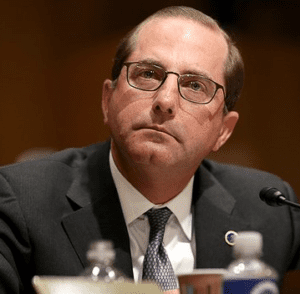 It is no secret that the Trump administration is bent on “exploding” Medicaid expansion. As part of that effort, the Centers for Medicare & Medicaid Services (CMS) has given 10 states permission to implement projects that require individuals to work or complete work-related activities to maintain their coverage.
It is no secret that the Trump administration is bent on “exploding” Medicaid expansion. As part of that effort, the Centers for Medicare & Medicaid Services (CMS) has given 10 states permission to implement projects that require individuals to work or complete work-related activities to maintain their coverage.
U.S. District Court Judge James E. Boasberg recently issued decisions halting those projects in Kentucky (Kentucky HEALTH) and Arkansas (Arkansas Works Amendment). Notably, the projects also limited retroactive eligibility, and in the case of Kentucky HEALTH, charged premiums of up to 4 percent of the federal poverty line, imposed a lockout penalty for failure to pay, terminated non-emergency medical transportation, and charged heightened cost sharing for non-emergency use of emergency rooms.
The opinions in Stewart v. Azar II (Kentucky) and Gresham v. Azar (Arkansas) come just eight months after Judge Boasberg invalidated the initial approval of Kentucky HEALTH in Stewart v. Azar I. Referring back to his reasoning in Stewart v. Azar I, Judge Boasberg found that the re-approval of the Kentucky HEALTH project and the approval of the Arkansas Works Amendment (AWA) were arbitrary and capricious.
HHS Secretary Alex Azar (picture left) did not adequately consider whether the projects were likely to promote the central objective of the Medicaid program – to furnish medical coverage to low-income individuals.
“The Court has said this before and will say it again: if as Arkansas and HHS admit (and this Court has found), ensuring Medicaid coverage for the needy is a key objective of the Act, the Secretary’s failure to consider the effects of the project alone renders his decision arbitrary and capricious; it does not matter that HHS deemed the project to advance other objectives of the Act,” Judge Boasberg wrote in Gresham v. Azar involving Arkansas Medicaid waiver project called “Arkansas Works Amendments” or AWA.
Both in Kentucky and Arkansas, the HHS secretary failed to address coverage losses, and instead focused on whether the waiver projects would promote health, individual fiscal responsibility, prepare low-income people for commercial insurance coverage, and help secure financial sustainability of Kentucky’s Medicaid program.
In addition, in both cases, Judge Boasberg found the secretary’s rationale inadequate, especially in light of the dramatic coverage losses already in Arkansas, about 18,000, and the projected coverage losses in Kentucky, which the state pegged at more than 95,000, and commentators on the project said would well exceed 100,000.
HHS’ “attempts to find refuge in other purposes of the Act and the propriety of Chevron deference as to those purposes are . . . all hat, no cattle,” Judge Boasberg wrote in Gresham. “Because they agree that the provision of low-cost medical care to Medicaid-eligible persons is ‘core’ purpose of the Act… there is no legally significant dispute over the meaning of the Medicaid Act. What matters, instead, is the question addressed above: whether the Secretary adequately considered the issue. As has been made abundantly clear, he did not.”
While his opinions are steeped in legal analysis and application of legal standards, Judge Boasberg was mindful of the repercussions of the approvals on people trying to survive in jobs with low-wages and little access to health care.
Boasberg opens his opinion in Gresham noting several of the Arkansas plaintiffs’ stories showing the harm inflicted by a work mandate and reporting requirement already in place and emblematic of what is commonplace for people working or looking for work in Arkansas.
Adrian McGonigal, 40 and living with his brother, had a job in the food-service industry for years, but that job, as so many others do not provide health care coverage to workers. When Arkansas expanded Medicaid under Obamacare, Adrian was finally able to afford health care coverage. He obtained health care and services needed for his medical conditions and preventive care. When HHS approved the Arkansas waiver plan in 2018, however, Adrian fell prey to the work mandate and reporting requirement. While he tried to comply with the new law, he discovered that he lost coverage when he attempted to pick up prescriptions but could not afford the new copay of $800 dollars. Subsequently his health conditions worsened, causing him to lose his job.
Because of Arkansas’ Medicaid waiver project Adrian “lost his Medicaid coverage and his job,” Judge Boasberg pointedly observed in the opening graphs of Gresham.
The Trump administration’s actions in both cases, if allowed to go forward, would end Medicaid coverage — and access to affordable health care — for thousands and thousands of people.
Not surprisingly, perhaps, the administration does not appear moved by what is happening the courts. Just after the Boasberg decisions, the administration approved a Utah Medicaid waiver project that contains a work requirement, even though Utah voters called for full Medicaid expansion, not what HHS is peddling.
The fight to protect, defend and better the lives of low-income people and families is arduous, ongoing, and vital.